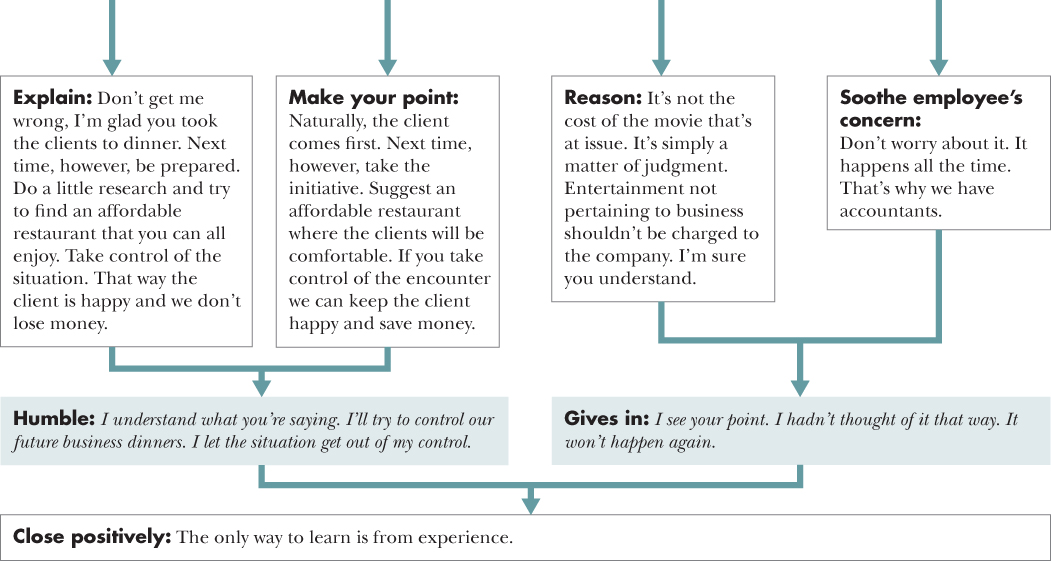62
Questioning a Direct Report's Expenses
STRATEGY
When questioning a direct report's expenses, remember to be calm and collected. The last thing you want is a conversation laced with accusations and denials. If you chastise the employee, nothing productive will arise from the meeting. Your goal is to make the employee aware of a mistake in judgment and be sure it doesn't happen again. Perhaps they took a client out to an expensive dinner or charged the company for an in‐room hotel movie. The first example is about judgment and experience. Help the employee recognize the problem and discuss future solutions. In the second example, it's more a question of acceptable behavior. Don't blame them for ordering the movie, just calmly explain it isn't appropriate to charge the company for personal entertainment. If you educate rather than punish, most employees will appreciate your advice and guidance. If the problem persists, you must deal with the employee in a harsher fashion. For a first offense, however, give them the benefit of the doubt and show them how to behave appropriately in the future.
TACTICS
- Attitude: Be calm and collected; even friendly. Don't embarrass or accuse the employee. This will only lead to resentment. An upbeat and positive approach will ensure the employee learns from her mistake.
- Preparation: Anticipate the individual's protests and excuses. Have two copies of the expense report in question. That way you can look over it together.


- Timing: Have this meeting in private. Never question someone in front of other employees. Try to schedule the meeting after lunch when the individual will be most relaxed.
- Behavior: Even if the employee becomes upset at the suggestion of poor judgment or disallowed charges, don't lose your temper. Remind them you're trying to help. Don't threaten them with disciplinary action unless the problem has repeated itself several times.
ADAPTATIONS
This script can be modified to:
- Confront a student about an unintentional cheating incident.
- Coach a worker about appropriate behavior with clients.
KEY POINTS
- Don't lose your temper. It only makes the situation worse.
- Illustrate the error in judgment, thoroughly explain the individual's mistake, and offer possible solutions.
- Remember the goal of the meeting is to educate, not scold. Show your direct report the mistake and try to be sure it isn't repeated.
- Don't undermine your direct report's confidence. Show you still have faith in them.
